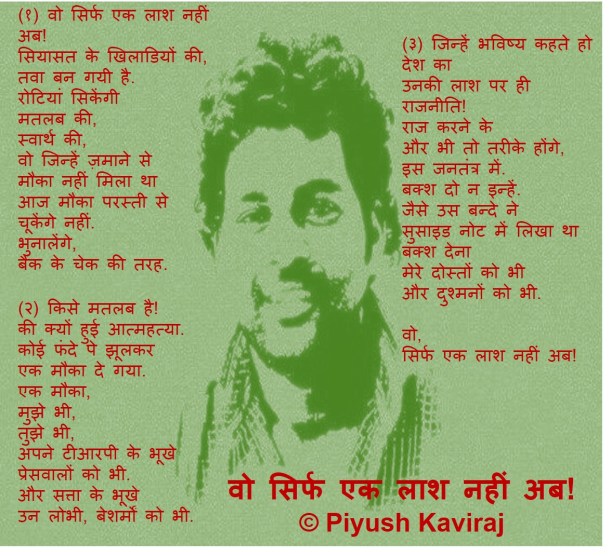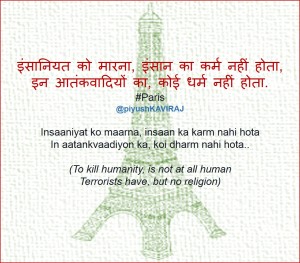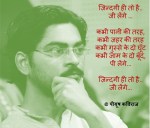A 2015 study at the University of California Berkeley found that 47% of graduate students suffer from depression, following a previous 2005 study that showed 10% had contemplated suicide. A 2003 Australian study found that that the rate of mental illness in academic staff was three to four times higher than in the general population, according to a New Scientist article.
Read this article to get a glimpse of what PhD scholars may go through in the hindsight..by Jennifer Walker (Jennifer Walker is an ex-physicist turned culture and travel writer living in Europe.)
One night during the third year of my PhD program, I sat on my bed with a packet of tranquilizers and a bottle of vodka. I popped a few pills in my mouth and swigged out of the bottle, feeling them burn down my throat. Moments later, I realized I was making a terrible mistake. I stopped, trembling as I realized what I’d nearly done.
I called a friend and met her in a bar exactly halfway between my house and hers. That night changed things for both of us. She met the love of her life—the bartender, who she later married. And I decided I wanted to live. The morning after, I found a therapist and considered quitting my PhD.
It’s common knowledge that getting a PhD is hard. It’s meant to be. Some even say that if you’re not up all night working or skipping meals, you’re doing it wrong. But while PhD students are not so naive as to enter the program expecting an easy ride, there is a cost to the endeavor that no one talks about: a psychological one.
The days I spent pursuing my PhD in physics were some of my darkest. It wasn’t the intellectual challenges or the workload that brought me down; it was my deteriorating mental health. I felt unsupported, isolated and adrift in uncertainty. Anxiety attacks became a part of my daily life. I drank and cut myself. I sometimes thought I wanted to die.
I might not have felt so alone had I known how many people struggle with mental health issues in academia. A 2015 study at the University of California Berkeley found that 47% of graduate students suffer from depression, following a previous 2005 study that showed 10% had contemplated suicide. A 2003 Australian study found that that the rate of mental illness in academic staff was three to four times higher than in the general population, according to a New Scientist article. The same article notes that the percentage of academics with mental illness in the United Kingdom has been estimated at 53%.
But the stiff-upper-lip attitude that pervades the ivory tower can prompt many people who struggle with mental health problems to keep their problems hidden, while others simply accept depression as par for the course. And in the often-Darwinian culture among graduate students competing for a handful of professorial jobs, too many people assume that psychological problems are only for the weak.
“I assumed and hoped that simply taking antidepressants and just ‘working harder’ would help enough,” says Jane*, a PhD student in biology who’s been diagnosed with anxiety and depression. “And when things did not quickly improve, this further affected my mood.”
In essence, many PhD students are so accustomed to hard work and self-discipline that they beat themselves up when their efforts to manage depression fail to generate perfect results.
A general feeling of isolation can also weigh down graduate students who spend much of their time buried under a pile of books or alone in a lab.
“The issues that affect students in general, which could also factor in for PhD students, is living independently and having independent work,” says Anoushka Bonwick, the projects and relationships officer at the UK charity Student Minds. Equally stressful is the fact that PhD students face “uncertainty about the future, such as funding for research and what they are going to do after a PhD.”
These issues can have an even bigger impact on students who lack supportive advisers.
“My biggest difficulty was the feeling of being cut adrift,” says Andrew*, a former PhD student in physics who dropped out months before finishing. “I didn’t have a very involved or hands on supervisor.” While he left the program in part to relocate with his partner, he says that “a more involved supervisor might have changed things.”
Other PhD students often suffer from imposter syndrome. This was part of my problem even before signs of serious mental health problems arose. I felt as if I’d gotten this far in my academic career by fluke, and that the top grades I’d received during my undergraduate and master’s studies had been an administrative mistake. This fed into my anxiety as well as my depression.
Imposter syndrome is a frequent problem among high-achieving students who find themselves surrounded with others like them, according to Linda*, a sociology professor from New Jersey. “It’s very common to feel an incompetent fraud, and usually to assume you’re the only one who feels that way,” she says.
The frequency of these problems shouldn’t scare prospective students away from pursuing PhDs. But they should be prepared going in to think about how they will handle psychological challenges as well as intellectual ones.
“I think firstly it’s really important to scope out support services that the university offers,” says Bonwick. This can mean everything from university counseling services to student support groups.
More universities and colleges are also making efforts to do more to support graduate students. Student non-profits like Student Minds in the UK and
Active Minds and the
Jed & Clinton Health Matters Campus Program in the US collaborate with educational institutions to raise awareness for mental health issues among students, as well as establish a support network.
Beyond these initiatives, universities need to do more to train supervisors to recognize the warning signs of everything from low-level depression and anxiety to suicidal tendencies and substance abuse. And they need to create a culture of openness that not only removes the stigma associated with mental-health problems but encourages students to ask for help.
“Academia is understanding, but perhaps too accepting, that everyone has problems,” says Jane. “Just because many people do have mental health problems, it’s not ok that that’s ‘how it is.’”
Finally, it’s important that both prospective and current PhD students directly confront the tenuous realities of the academic job market and plan accordingly. Uncertainty about the future can take a major toll on students, but they’re less likely to suffer if their entire identities aren’t tied to graduate school.
“If you do want to be a professor, think about what your life might be like if it that doesn’t happen,” advises Linda. “What else will make you happy? Aim for balance in life so that a rich world of family, friends, and hobbies give fulfillment where work may not.”
In my case, therapy helped me survive and complete my PhD—and so did planning my way out of academia before I even finished my thesis. I’d decided to become a writer. These days, I seldom use my physics knowledge. But I still rely on the inner strength that I developed during my time in graduate school, which gave me the courage to mold my own life.
.














